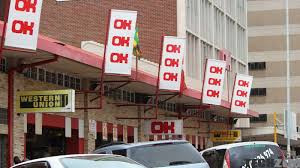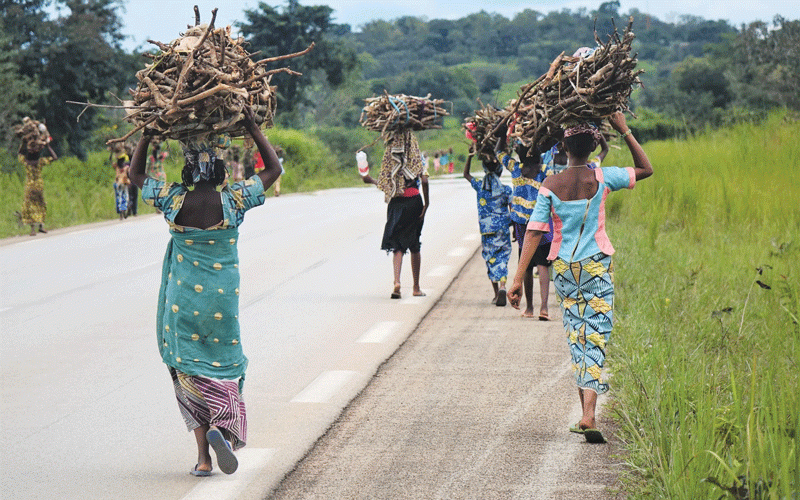
THE recent struggles faced by Zimbabwe Stock Exchange-listed OK Zimbabwe, one of the nation’s largest retailers, are a troubling reflection of the broader challenges confronting the country’s retail sector.
From empty shelves to stiff competition from informal traders, the retail industry is buckling under immense pressure. This troubling trend has already claimed significant casualties, including Choppies’ decision to put its Zimbabwean operations on sale.
On August 31, 2023, Metro Peech & Browne (Metro Peech), a leading Zimbabwean wholesale chain which began operating in 2007, was placed under corporate rescue. At the time, Metro Peech had 19 branches across Zimbabwe and several workers were retrenched.
OK Zimbabwe was last week forced to issue a statement allaying fears that it was facing collapse after some videos showing empty shelves at its stores went viral.
There were insinuations that the company was facing insolvency, hence its failure to restock.
In the statement, OK Zimbabwe said: “We assure all stakeholders, including customers, shareholders, employees and partners, that our stores are open for trading.”
“Although the company faced intermittent product supply challenges during the festive period, we continue to serve our loyal customers and contribute to the economic growth and development of Zimbabwe,” the retailer added.
However, at the heart of the crisis is an unstable economic environment characterised by currency volatility, erratic supply chains, high operational costs, and rising competition from informal markets.
- EcoCash, OK Zimbabwe seal partnership
- OK Zim ignites Christmas is Here promotion
- Business giant Chiura laid to rest
- Currency woes: Suppliers demand cash upfront
Keep Reading
The local currency’s unpredictability before has made it nearly impossible for businesses to balance revenue and restocking costs.
In the past year, retailers have been pushed into a vicious cycle of price hikes to hedge against exchange rate losses, only to alienate already cash-strapped consumers. Power outages have only worsened the situation. Businesses like OK Zimbabwe have had to rely heavily on generators, driving up operating costs and eating into already thin profit margins.
For many retailers, the cost of keeping the lights on has become unsustainable, leaving them vulnerable to insolvency.
The rise of tuckshops has added another layer of complexity. Operating with minimal overheads and often sourcing goods through informal or illegal channels, these small traders can undercut formal retailers. While tuckshops provide a lifeline for struggling consumers, they also pose unfair competition for businesses bound by formal regulatory frameworks.
The struggles of big retailers like OK Zimbabwe, TM Pick n Pay and Spar raise serious questions about the future of formal retail in Zimbabwe. If large retailers, with their economies of scale and established infrastructures, are struggling to stay afloat, what does this mean for smaller players?
The ripple effects of these challenges are far-reaching. For workers, the uncertainty surrounding OK Zimbabwe’s financial health is a source of anxiety.
Beyond the individual, the closure or downsizing of big retailers disrupts supply chains, impact local suppliers, and reduce consumer choice. The retail sector also plays a critical role in the economy as a barometer of consumer confidence and spending power. The sector also employs thousands of workers in an economy with one of the highest unemployment rates globally.
The current turmoil signals deeper structural issues that extend beyond retail, and calls for urgent economic reforms.
The plight of Zimbabwe’s retail sector is a wake-up call for policymakers to address the underlying issues stifling business growth. The government must prioritise currency stability and create mechanisms to shield businesses from the adverse effects of exchange rate fluctuations.
Resolving electricity shortages should be a top priority, as reliable and affordable power is critical for reducing operational costs in the retail sector.
Informal traders should be encouraged to formalise their operations through incentives. This fosters a more balanced competitive environment. The government must address industry-specific concerns, such as high tax burdens and supply chain inefficiencies.
OK Zimbabwe’s challenges are not isolated, but are a symptom of systemic issues plaguing the economy.
The time to act is now. For retailers like OK Zimbabwe, and the thousands of lives and livelihoods they support, the stakes could not be higher.











